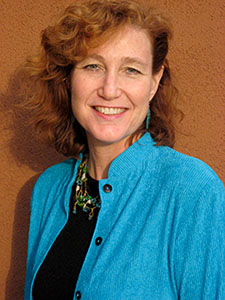
I did not know what to say,
my mouth
had no way
with names,
my eyes were blind,
and something started in my soul,
fever or forgotten wings,
and I made my own way,
deciphering the fire,
and I wrote that faint first line…
—excerpt from Pablo Neruda, Poetry
Finding Your Voice, Or, 10 Tips for Writing Projects
So, it’s February. In much of the north, it’s a cold, dark, wintry, doldrum kind of month. But it can also be a perfect time to stay inside and write. The weather isn’t tempting you to run outside and enjoy the park, take a bike ride, or play volleyball with your friends. It’s a quiet time. The perfect ambiance for reflection, and to take a different kind of action.
1. Schedule it—then do it!
One of the things I say over and over to my clients is, “What gets scheduled is what gets done.” Ever notice how until you actually have the doctor’s appointment on your calendar with a date and time, it’s always floating around in the intentions fog of “I’ll get to it.” But once it’s on your calendar, your committed to following through. This doesn’t mean you have to set aside huge chunks of time. Just 15 minutes every single day with help keep you from losing momentum, and creating an unscalable mountain.
2. Start where you are—even if that happens to be the middle.
If a blank piece of paper or a blank computer screen scares you, try doodling key words, like “My findings…” “Research shows…” Get a picture that relates to your topic and start writing about that. Writing fiction? Get a baby name book and imagine who Rosalie really is. Chances are once you write something, and eliminate that blank space, the ideas will begin to flow. If you find yourself realizing that you don’t have all the information you need, just jot a note to one side about the resources you will look at later to find the answer to your question.
3. Try a different technique
Instead of writing, try recording your thoughts and then transcribing them later. You could even take a tape recorder and ‘talk-walkin,’ as my grandfather used to say. In this day of blue tooth telephone devices, no one is even going to look at you funny for talking out-loud. But if you are embarrassed to be seen doing this, try what another friend of mine does: he walks through a nearby graveyard and tells his stories to the denizens there.
4. Feeling stuck? Write in a different environment
Are there just too many distractions at home? Try checking yourself into a motel for a weekend if you need to make a big push to finish a project. If you are feeling isolated, take your writing to a local coffee shop. Many coffee shops these days have places to plug in your laptops, and you may find it comforting to be surrounded by other people who are also working alone.
5. Celebrate when you finish a section.
It doesn’t matter how big or small your celebration is: if you get a three paragraphs done that you have been struggling with for three hours, maybe all you need is a coffee break as your reward. Or a quick walk around the block. But take the time to reward yourself so that it doesn’t seem like an never-ending slog through the slush. Maybe you deserve a big reward once that chapter is finished: make sure it’s something you like to do, whether going to the movies, taking a long hike, or just relaxing in front of the fire.
6. Treat writing like a day job: quit at the end of the day
If you spend all your time writing, and forget to get up from the computer, drink too much coffee, then find you can’t sleep at night for worrying and caffeine, you need to think about taking care of yourself better. Eating right, getting enough sleep, exercising, spending time out with friends will actually help you be more productive when you sit down to write.
7. Find an accountability partner
Whether it’s a friend who you tell what you are going to do day by day, or another writer, or a coach that will hold you accountable, it’s a lot harder to say, “I’ll do that another day,” when you know someone else is waiting for the output.
8. Stop the Critical Voices: Make New Tapes
Remind yourself, “Whose project is this anyway?” Ask, “What do I want to say to my audience?” The imagine an audience that supports you and loves what you have to say. All of us have those voices in our head that say, “This isn’t good enough,” or, “There is so much more to say.” That’s OK. Every time you write something you learn a little bit more about how to do it, and how to do it better. Replace those negative voices with positive ones: “This is good information;” or “I know this material better than anyone else;” or “This is my story and I’ll write it the way I want to write it.”
9. Picture the finished product
One of the easiest and most fun things to do with a writing project is imagine how it will look when it is finished. Picture your book on the shelf, or your name as an author in a journal article. Imagine how good you are going to feel.
10. Get therapy if you find deep-seated issues blocking you
“Writer’s block” can go good bit deeper than these techniques might suggest. If you find yourself regularly practicing avoidance as your modus operandi, there may be something deeper that is worth exploring. You won’t be the first, and you won’t be the last, person to confront the shadow side of themselves when faced with writing.
So, those are my tips to get you started on your writing project and simultaneously avoid those February blahs.
 If you want to move your writing life forward and create new habits, please contact me at CoachHillary@TransitioningYourLife, or by visiting www.TransitioningYourLife.com to set up a 30-45 minute complimentary coaching session. As my free gift to you, to help you create your own vision quest, you can download my Special Report: Visioning and Goal Setting.
If you want to move your writing life forward and create new habits, please contact me at CoachHillary@TransitioningYourLife, or by visiting www.TransitioningYourLife.com to set up a 30-45 minute complimentary coaching session. As my free gift to you, to help you create your own vision quest, you can download my Special Report: Visioning and Goal Setting.
For those of you who would like to go further in exploring your own vision my mini-course, Your Personal Vision Quest: Manifesting Your Dreams Into Reality is now available for download. This self-paced six-part mini-course is only $37.00. Register at the Experts Insight Academy site here: http://eia.prfessor.com/course/764/register
If you know someone who you think might benefit from this newsletter, please feel free to pass it on!








Hi Hillary,
I found your website because I run a google alert for “academic coaching” (because I’m an academic coach myself). I love this list!! So useful; am definitely bookmarking it and will forward it on to clients.
I also wanted to add something to the list: movement! I’ve been immersing myself in research that discusses the links between movement and thinking. It’s quite amazing how moving the body really can jumpstart our creative thinking. Taking a walk, getting up and dancing around the living room, ANYTHING. I invented the MuseCubes as a fun tool to help us remember to move when we’re feeling stuck.
So glad you’re out there supporting folks who are dissertating!!